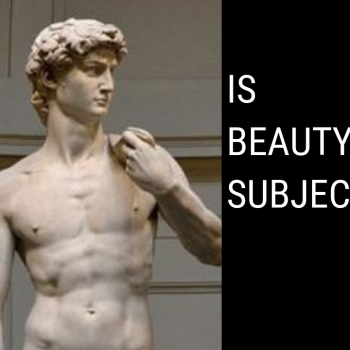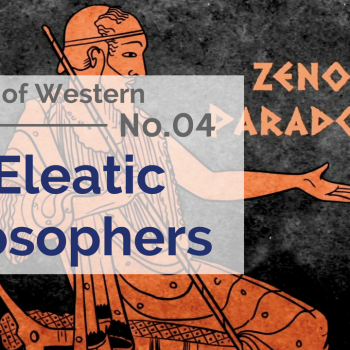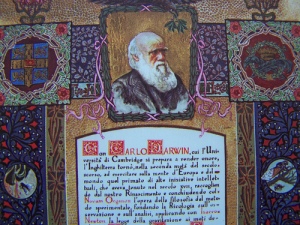
“You have the God you believe in.” – Martin Luther
[warning: this post has a central point, but also touches on many big issues in a process that both meanders and relentlessly “re-frames”. Patience may be needed.]
Charles Darwin talked about the “truth of the universal struggle for life”, where the “strongest live and the weakest die”. For example, “intelligence is based on how efficient a species became at doing the things they need to survive.”
As A.N. Wilson points out, Darwin’s mechanistic theory of natural selection “removed any necessity for a metaphor of purpose when discussing natural history”[i]. Many years after Darwin, Richard Dawkins then reduced matters to the level of the individual “selfish gene”. And now, evolutionary epistemologists (this is evolution applied to the “theory of knowledge”) have argued that the ideas in our minds are not selected for their truth value but their survival value.
Much to dispute there of course! Still, doesn’t it seem like Charles Darwin was on to something when he used the words life and survival in the same breath? Doesn’t this point us to what is, in fact, an obvious truth?
No.
Yes.
It depends.[ii]

Darwin, of course, was right to highlight the obvious fact that we, as human beings, are consciously concerned about our lives and the upholding of the same. And this is, in one sense, the way things must and should be – each of us exhibiting legitimate concern for ourselves, which is in fact a part of serving our neighbor. That said, persons like Darwin, deep down, really do believe that life, “nasty, brutish, and short… red in tooth and claw” (Hobbes), is really all about pure survival – for one’s self and those one cares about.[iii]
“This is most certainly true”, they believe.
Of course, this is not really what is true about life. Rather, the words of God’s risen Messiah are true: “whoever loses their life for me will save it.”
The Christian should know that losing our lives for Christ is not something we are supposed to worry about. It is something we are supposed to receive from the hand of our loving heavenly Father. The foremost way that we “lose our lives” has to do with something that is entirely passive on our part.[iv] It means that He drowns our old self in baptism, and identifies us not with this fallen world but with Him (see Romans 6). Having left the old, empty way of life behind, we are united with the One who makes all things new. And having been raised from the dead Himself as the first fruits of a new creation, we too are raised to spiritual life… and will know new physical life as well in the life that is to come. This world no longer has any real power over us – even if this is something we continually have trouble believing.
So the answer is “no” – life is not ultimately about our struggling to survive. We have a heavenly Father who has saved us from the world, the flesh, and the devil! We are worth more than many sparrows.
But why then would I say that the answer “yes” is a possible answer as well?
Well, all of us – even Christians – know that we fight for many things: our integrity, recognition… “success”. And in the midst of this, do we not seem to be estranged from the world we know? As Pastor Brian Wolfmueller puts it, our consciences tell us (at the very least!) that there is something wrong with
- me
- the way others treat me
- the way people treat other people
- everything
It seems to me that whatever we believe about the divine, man, and the world, we know that this is true. At the very least….can you admit it often feels like it!?
Of course as a Christian, I would go much further than this. Although we can’t not love as a human beings, our love is not only weak, but fallen. More specifically, because it is not oriented correctly, our love is wholly tainted with selfish desire…. corrupt. Take the matter of how we abuse sex, for example. As the journal First Things provocatively put it in a recent tweet (leading to a larger article on the purpose of pornography): “Sex distracts us from death. Perhaps that is why it has come to be seen as the central purpose of human existence.”

Death. Is not the specter of death always lingering in the background in everything we do? As the book of Hebrews puts it, Christ came to “deliver all those who through fear of death were subject to lifelong slavery”.
I submit this is the core reason for the “yes” answer: man is at war with death, and it is indeed awareness of death that, in part, fuels all that he is and does. We can see this illustrated not only in the efforts of persons to have their names live on – to be memorialized and such – but in the extremes we see around us. Historically, most men have not, in Ray Kurzweil fashion, thought it realistic or worthwhile to try and topple death itself – at least in this world. On the other hand many have, for example, attempted to assert their authority over death by taking their lives into their own hands… and ending them. Not only this, we know that at one time Buddhist sages attempted to overcome death’s power – the temporality of this world itself – by dying a slow and intentional death…. This is known as the practice of sokushinbutsu, where “austerity [is observed] to the point of death and mummification.” By doing this, they sought to earn bliss in a life which transcended this world.[v]
Why? Perhaps the Apostle Paul gives us a clue when he states that all know “God’s righteous decree that those who practice [evil] deserve to die” (Rom. 1:30-32). And of course, none of this is meant to deny what he also asserts elsewhere not of Christians but of pagans: God “satisfy[ies] [human] hearts with food and gladness” (Acts 14).
So not even possessing true joy in one’s heart from God is the same as salvation from the “wages of sin”, death!
But this is exactly all the stuff that fallen man wants to suppress and not think about. Really better not to frame it this way…
Indeed, since human beings are not like the other animals, we can deliberate over whether or not to rightly grow and reach our intended end (not death… but eternal bliss with God and men). And therefore, there is much to be said about “natural man’s” fight for survival. All of this is inevitably tied up with philosophy, which the French philosopher Pierre Hadot asserts – I believe rightly – is like a religious conversion. We must say that all men – the greatest and the least – are philosophers, involved in what Hadot says involves “a total transformation of ones vision, life-style, and behavior.”
[bonus insight from my pastor: “Philosophy determines self-control internally. Civil law determines how the self is controlled externally. When theses two clash, then we have problems.”]
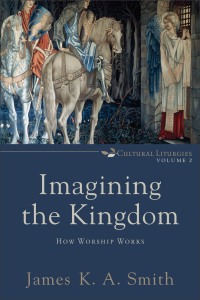
Whatever someone’s philosophy, they are seeking what they call the “good life”, and they will attempt to state what this life entails as positively as they can. Finally however, examined negatively, this is actually an attempt to be able to live with themselves – to be content in the face of the questions of meaning that may haunt them…. To be able to find answers that they take some satisfaction in regarding their questions of life, death, guilt, etc…..
And how do we get back to Darwin in all this? Unbelief leads to sin which leads to death which leads to fear which leads to an obsession – though knowledge of this is also suppressed – with survival. Still, the hard-core evolutionist looks to “bravely” face the “truth”: it is not only ideas in our minds which are selected for their survival value – not truth value – but everything. It is True that everything is about survival – particular truths being valuable only insofar as they aid survival (for problems with this see here).
Surely, when matters are put this way, even some non-theist evolutionists will balk. That said, I wonder if any outrage they might feel can last. After all, thoughts of “selfish genes” aside, more “liberal” (i.e. idealistic, Romantic, historicist) evolutionists could – in complete harmony with what I have put forth above – also think about this in terms of the survival of love – of fighting to continue life not just for myself but for those I love! And maybe I really do feel like – and think – I am eager to love the whole world….
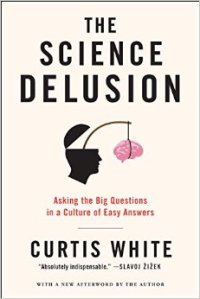
And in the midst of all of this kind of thinking, I suggest that we can find many grains of truth. After all, as those created in the image of God, we certainly were made to love our neighbors. I would even posit that all communication, for example, exists primarily for the sake of love between persons, particularly the Creator and the crown of His creatures, man. Further, I would assert that the key purpose of communication, specifically but not limited to oral language, is that it enables us to share, intelligently navigate, pursue goals in, and enjoy the world and with other persons, present as well as past (i.e. remembering).
So, even for the Christian, it is best not to think about the purpose of language being to form truthful propositions (even as they are eager to propose Christ and His benefits to the neighbors they love!).[vi] The Christian seeks to be true, using all gestures – particularly spoken words – to love his neighbor. This means helping others to know peace in the midst of what we sometimes can only call a “vale of tears”, that is, a dying and disintegrating world. In such a world – ravaged by the curse and the “Prince of this world” – we are not exempt from the reality of life’s struggle, nor immune from the temptations we face.
So being more specific, just how does Darwin help us see the truth – namely that life is about helping our neighbor survive? Simply put, Christians know that even though God has delivered them from the world, the flesh and the devil they are still here. The reason is that God is keen that all persons – our neighbors – would survive His wrath. He desires that all persons be saved and come to a knowledge of the truth.

And here, the Scriptures have two important themes to understand.
On the one hand, we learn how God, while we were still sinners (enemies), was reconciling the world to Himself in Christ. He obviously means to be taken seriously here when He says the world (elsewhere: “the whole world”) and does not make an effort to qualify. Again, this really is a God who desires all persons to be saved, and to come to a knowledge of the truth.
On the other hand, in the book of John we learn that whoever does not believe in Jesus Christ is under the wrath of God: the wrath of God remains on those who reject the Son (see John 3:16-18, 36).[vii]
So which one is true? That is the wrong question. Here, your Christian friend should actually tell you “what is true for me” is not the wrong question (since its so postmodern!) but the right one!
Do you enjoy hearing about this Jesus you hear your Christian friend talking about? Are you curious to hear more? Do you feel a pull towards this man Jesus, His life, His message, His mind-numbing claims? Are you perhaps even thankful that this message of God’s great love for you in Christ has come to you here and now?
Then you have that first God, the Truth. And, in a very real sense, survival is not an ultimate issue for you: in Him you overcome the world, the flesh and the devil.
Or, do you turn away? If so, then you have that second God – even though that is not what He wants for you. You will not only not know victory over the world, flesh, and devil in this life, you will, being under God’s wrath, die the “second death” in the life to come.
Go with that first option, and you will truly – rightly – have the God you believe in.
FIN
Image credits: St. Darwin: https://c1.staticflickr.com/3/2482/3731337208_f2b2f791fc.jpg ; other non-book pics: Wikipedia.
Notes:
[i] In God’s Funeral, p. 188. Of course, in traditional Christian theology, this kind of talk was not metaphorical. That is, until Ockham: “For Ockham, all talk of nature acting unconsciously for an end is pure metaphor… causal explanations of a mechanist sort alone are possible…. [he] opens the way to the purely empirical approach of Baconian science” (Holmes, Fact, Value, and God, p. 74). Of course, there were previous theological developments in the West that made this kind of thinking possible as well.
[ii] I think, in general, if you insist on using the word “nature” the answer is “yes”. On the other hand, if you are eager to be displeased with the word “nature” – wanting to use the word “creation” instead – the answer is “no”. I think this is in the background of this entire article, but the following paragraph speak to this a bit more:
The difference between saying “creation” and “nature”…. The Christian knows that there is no “nature” that can be distinguished from the “supernatural” – not if that means that nature can be profitably believed to function apart from the moment-by-moment sustaining presence of its Creator. Not if man can imagine that he can master and control “nature” by reading the book of the world, ignoring its Author, and thinking it to be a machine he is now enlightened enough to master. Not if he can save himself – not needing the One who comes down from heaven that we might be “born from above”….. (John 3)
[iii] This man, a well-known, [formerly unapologetic] pick-up artist (the “red pill” he talks about refers to the movie the Matrix, and in this context, means having the courage to learn about the true nature of women), argues that while evolution as a theory is true that it does not apply to modern human beings. I think his argument would be particularly intriguing for anyone who buys into evolutionary thinking – even if my wider formulation above: “life is really all about survival – for one’s self and those one cares about“, would still seem to apply to his view.
[iv] From an old blogpost: “But wait a minute, we might say… what about the parables of the “treasure in the field” or “counting the cost”? It is true – on the other side of this banquet of grace, the parables of Jesus also call us to recognize that this love interest is going to cost us everything. The church cannot fail to see that being the bride of the King means “losing our earthly lives” – relatively speaking, we must see that they are, in a very real sense, “dead to us”. When He leads us to the treasure in the field, we see that the things on this earth really are – and must continue to be left behind – “buried” in the ground like the treasure was. After He finds us and brings us into the banquet this is the cost that Jesus demands we recognize and actively participate in. In his small catechism, Luther said: “that I may be His own and live under Him in His kingdom and serve Him in everlasting righteousness, innocence, and blessedness…” (see more on this here, from the most excellent Lutheran blog Pastoral Meanderings). This can mean nothing but a radical change – as He exchanges His righteousness for our sins, we also see that our world has been exchanged for His world.”
[v] This bliss of nirvana would be the extinguishing of their desire and even their own selves (as their individuality can only be seen as something to overcome).
[vi] This is not to say that truth in language is unimportant – it is always important, even as technical accuracy is not always needed nor even desirable. To say “the sun rises” today still, post-Galileo, still does not strike us as wrong or in need of adjustment. This holds true for both oral and written communication, for example. What is more important – the basis for beneficial communication – is that persons be true, hence acting truly.
“True” can also mean good things like being genuine, authentic, sincere, caring, firm in allegiance, loyal, steadfast as well. For example, we speak of true feelings, having a true interest in another’s welfare, or being a true friend. Here, in this sense, it seems to me that “real” could serve as a synonym of true. See http://dictionary.reference.com/browse/true
[vii] For any Calvinists in the room, I give you the Lutheran scholastic theologian Hunnius: “Why are the reprobate condemned for not believing that Jesus died for their sins if He didn’t, in fact, die for their sins?” In other words, “You are condemned for not believing what isn’t true for you, anyway.”





